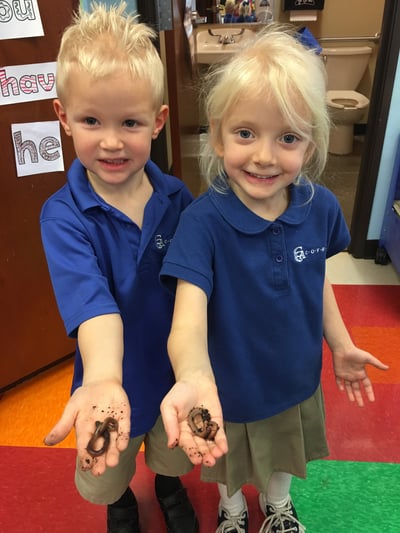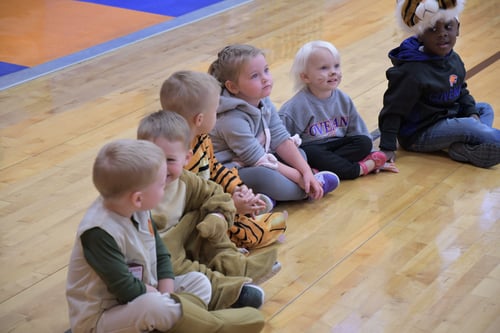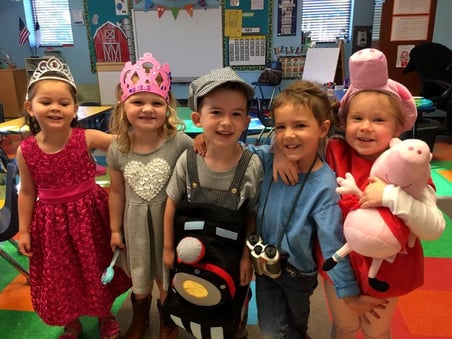
Years ago, the school in which I was teaching hosted a Parent Night where all the families were invited to visit the classrooms and view student work. One of my kindergarten students took his dad on a very thorough tour of our classroom, pointing out every detail and not missing a thing. Walking around the classroom, he would say things like:
“This is where I hang my backpack.”
“This is the Art Center where I paint pictures.”
“This is the Science Center and I like to look at bugs through a magnifying glass.”
And finally, upon approaching the Block Center, as if he was saving the best for last, the little boy stopped. And in his best super hero pose, he put his hands on his hips, puffed out his chest, and very proudly proclaimed,
“And Dad, this is where I work.”
For adults, it’s hard to imagine a child’s playtime activities as work. But play is what a child does best. And actually, play has a powerful purpose in building a strong foundation in a child’s intellectual and educational success.
Play is not dumping out toy bins, destroying block towers, or wandering carelessly around the room. Purposeful play happens in a thoughtful and well-prepared environment. It invites children into an experience where they can investigate, explore, manipulate, predict, examine, and question. Purposeful play builds upon a child’s innate curiosity and provides an outlet for meaningful discovery and learning.
So you may be asking: What exactly is my preschooler learning through play? Here are some areas in a child’s development that reap the benefits of purposeful play.
Gross Motor and Fine Motor Skills
Research has shown a child learns best when his/her whole body is involved. Providing activities that support the child using large and small muscles will engage their brain to readily learn and remember academic concepts.
Gross Motor Activities – Children need opportunities throughout the day to exercise their large muscles. Jumping, climbing, running, skipping, and swinging help to strengthen and develop coordination and balance. When large muscles are developed and exercised regularly, a child’s attention to learning academic concepts is heightened.
Fine Motor Activities – Manipulating small objects with hands and fingers will build strength and coordination. This will ultimately translate into critical skills for writing. Stringing beads, cutting playdough with scissors, sorting small objects using tweezers, and tracing patterns in sand are all activities that will prepare preschoolers for a proper pencil grasp and using writing instruments.

Self Concept
Purposeful play provides children with the opportunities to experiment with something new, take risks, succeed, but also fail in a safe environment. Activities where a child can practice doing things by his/herself encourages self-sufficiency. These experiences build a strong sense of self ---where virtuous qualities like fortitude, prudence, and temperance can cultivate and grow.
Social Development
It is very challenging to get a preschooler to think beyond their own needs. Providing purposeful play experiences will help a child to become more attentive to the people around them and their individual differences. As preschoolers listen, negotiate and even compromise during sessions of play, they begin to learn the basics of problem solving. Children also build important vocabulary and language skills as they interact and communicate with one another.

Imagination
In a world where technology “thinks” for you, building within a child a strong sense of imagination and creativity is so important. Purposeful play that frees a child to role-play, create imaginary settings, use toys to pretend, and dress up as fantasy characters develops creativity and positive relationships to the world around them.


